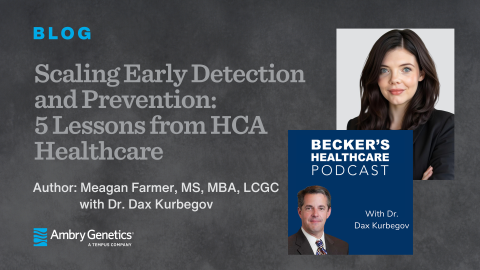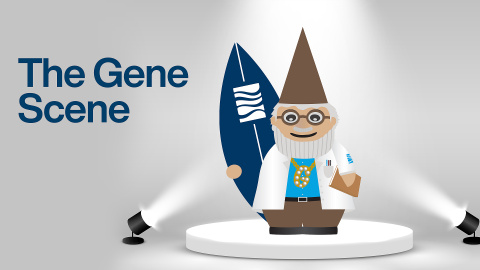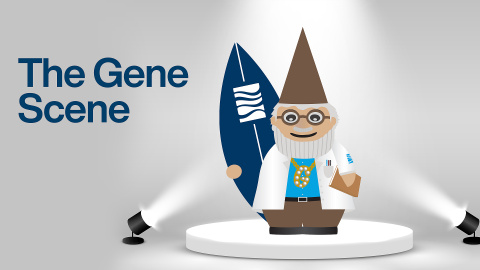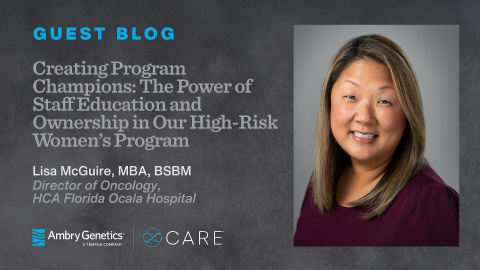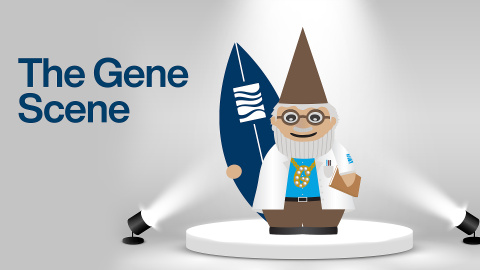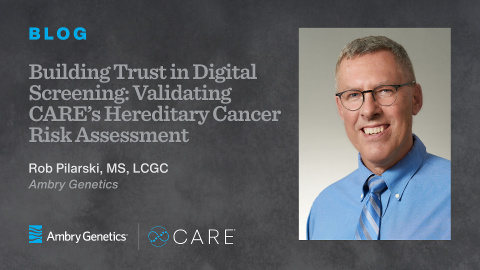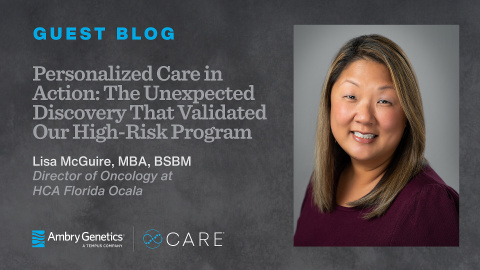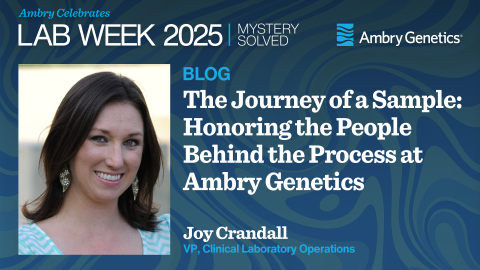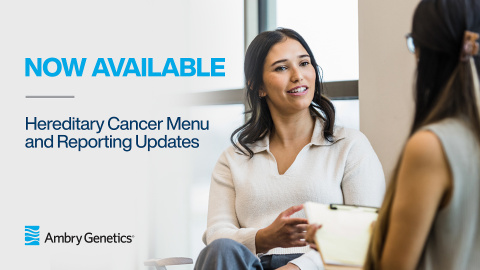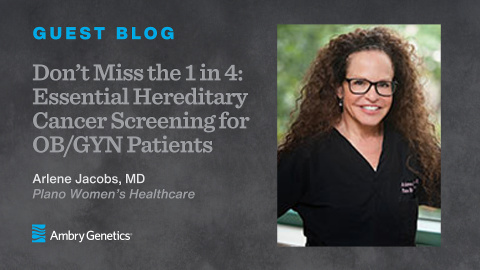- By Meagan Farmer
- Posted August 7, 2025
Scaling Early Detection and Prevention: 5 Lessons from HCA Healthcare
Only a fraction of high-risk individuals ever learns about their inherited cancer risk. But it doesn’t have to be that way. In a recent Becker’s Healthcare podcast, Dr. Dax Kurbegov, Senior Vice President at HCA Healthcare’s Sarah Cannon Cancer Network, shared how his team is closing that gap by building a scalable model for risk assessment…
- By Bradley Power, MS, CGC
- Posted August 5, 2025
The Gene Scene: TGFBR1
Welcome to the Gene Scene! Each week, we will explore a gene from the ACMG Secondary Findings list—genes identified by the American College of Medical Genetics and Genomics as having clear, actionable health implications. These genes are included because they’re linked to serious but preventable or manageable conditions when identified…
- By Jessica Gage, MS, CGC
- Posted July 21, 2025
The Gene Scene: PCSK9
Welcome to the Gene Scene! Each week, we will explore a gene from the ACMG Secondary Findings list—genes identified by the American College of Medical Genetics and Genomics as having clear, actionable health implications. These genes are included because they’re linked to serious but preventable or manageable conditions when identified…
- By Lisa McGuire, MBA, BSBM
- Posted July 16, 2025
Creating Program Champions: The Power of Staff Education and Ownership in Our High-Risk Women's Program
When we partnered with Ambry to launch our High-Risk Women's Program (HRWP) at HCA Florida Ocala in 2023, I was excited about the potential to improve early cancer detection and even prevention in our mammography patients. The Ambry CARE Program® (CARE) provided the digital tools we needed to assess hereditary and breast cancer risk based on…
- By Rachel Bluebond, MMSc, CGC
- Posted July 16, 2025
The Gene Scene: VHL
Welcome to the Gene Scene! Each week, we will explore a gene from the ACMG Secondary Findings list—genes identified by the American College of Medical Genetics and Genomics as having clear, actionable health implications. These genes are included because they’re linked to serious but preventable or manageable conditions when identified…
- By Robert Pilarski, MS, LGC
- Posted June 26, 2025
Building Trust in Digital Screening: Validating CARE’s Hereditary Cancer Risk Assessment
As a certified genetic counselor who spent eleven years on the National Comprehensive Cancer Network® (NCCN®)'s committee for the NCCN Clinical Practice Guidelines in Oncology (NCCN Guidelines®) for breast, ovarian, and pancreatic cancers, I've witnessed firsthand the challenges clinicians face in accurately identifying patients who meet criteria…
- By Lisa McGuire, MBA, BSBM
- Posted June 4, 2025
Personalized Care in Action: The Unexpected Discovery That Validated Our High-Risk Program
As the Director of Oncology at HCA Florida Ocala, I've witnessed firsthand how the combination of innovative technology and dedicated healthcare teams can transform patient outcomes. When we launched our high-risk women's program in 2023, I served as project manager, coordinating the implementation of the Ambry CARE Program® (CARE) across our…
- By Joy Crandall
- Posted April 24, 2025
The Journey of a Sample: Honoring the People Behind the Process at Ambry Genetics
Every April during Lab Week, we pause to celebrate the people whose work powers every test result, every insight, and every life changed through genetic testing. At Ambry Genetics, that celebration runs deep—because it truly takes a village. This year for Lab Week, we are spotlighting something special: the full journey of a sample, and the…
- By Lauren Csukardi
- Posted April 22, 2025
April 2025 Hereditary Cancer Menu and Reporting Updates
At Ambry, we’re continuing our track record of scientific innovation and discoveries with our latest hereditary cancer testing menu enhancements and reporting updates—powered by Ambry Classifi®. Our peer-reviewed, published gene-disease validity (GDV) scheme enables the enhanced assessment and characterization of RPS20 for colorectal…
- By Caitlin Reid, MS, LGC, CGC
- Posted April 11, 2025
Don't Miss the 1 in 4: Essential Hereditary Cancer Screening for OB/GYN Patients
A conversation with Arlene Jacobs, MD, Plano Women’s HealthcareCaitlin Reid, CGC: Dr. Jacobs, you’ve been passionate about screening your patients for hereditary cancer. Can you tell us why you use hereditary cancer risk assessment in your OB/GYN practice? Arlene Jacobs, MD: Many of my patients see me not only as their OB/GYN, but…
